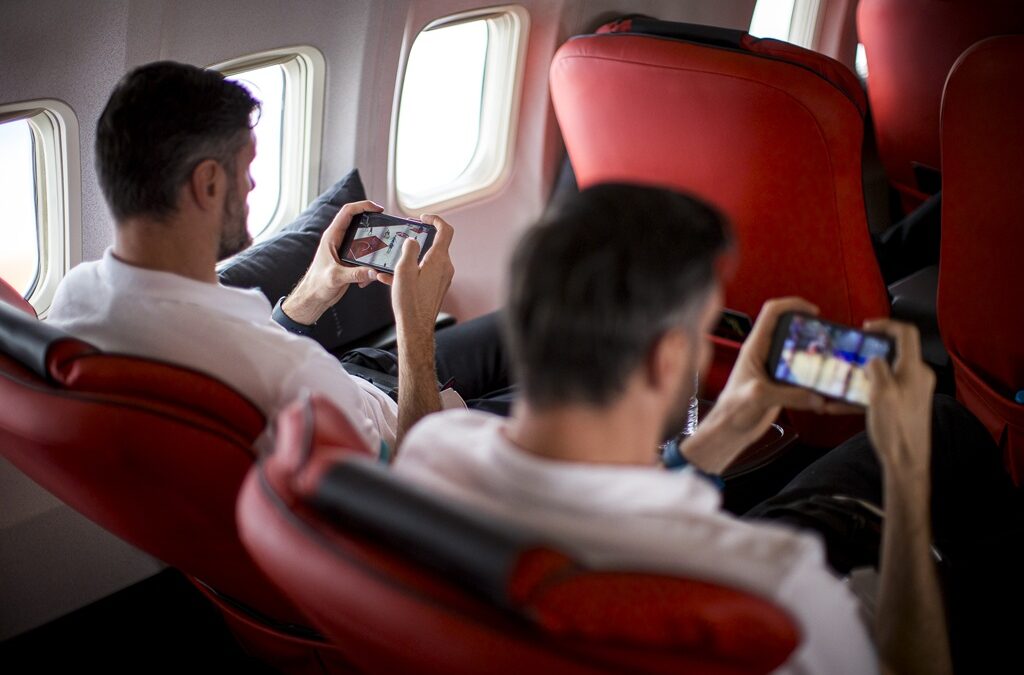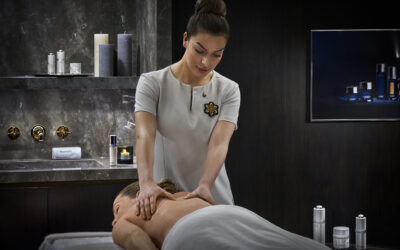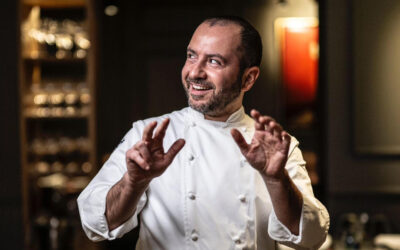How VIP Charters Cater to the Unique
Needs of Professional Athletes
Professional sports are an incredibly competitive field with no margin for error or the luxury of a bad day. What might seem like the smallest detail to us can be the difference between glory and heartbreak. No wonder that the top athletes and sports teams typically choose to travel to their games by VIP charter planes. The team members of KlasJet, a global private and business charter service airline, emphasize that during such flights, the key task is to adapt to the particular needs of the athletes on board.
From football teams to polo players
For the professional teams at the highest level, flights by VIP charter are not a luxury, but more of a necessity. Modern teams play more high-stakes games than ever, and also travel more often and farther than clubs did twenty or thirty years ago. The Athletic, a highly influential sports publication, reported that a typical Premier League team has 58 such trips every season. The number is even higher for clubs at the highest level.
And then there are major national team competitions such as the Euros and the World Cup, which take place every other year. During such events, demand for VIP chartered flights rises significantly. According to Šarūnė Valaikaitė, a flight attendant at KlasJet, sports are highly seasonal, and during major events, the need for flights goes up significantly.
“Football is the most obvious example. When tournaments as big as the Euros or World Cup are approaching, almost all of our planes are flying only national teams. Formula 1 and basketball teams also create extra demand. Our aircraft have 60 seats and are most suitable for football or rugby teams, so naturally we fly with them the most,” she says.
As Ms. Valaikaitė remembers, depending on the sports calendar, athletes can make up the majority of KlasJet’s passengers. For example, during the 2022 World Cup in Qatar, it was common to see several of the airline’s planes with national football teams in the air at the same time. “It’s also very nice that the diversity of the sports we work with is constantly expanding. For instance, this year we traveled with some of the athletes who compete in MotoGP motorcycle championships. We even had horse polo players on board. Just without the horses, of course,” she jokes.
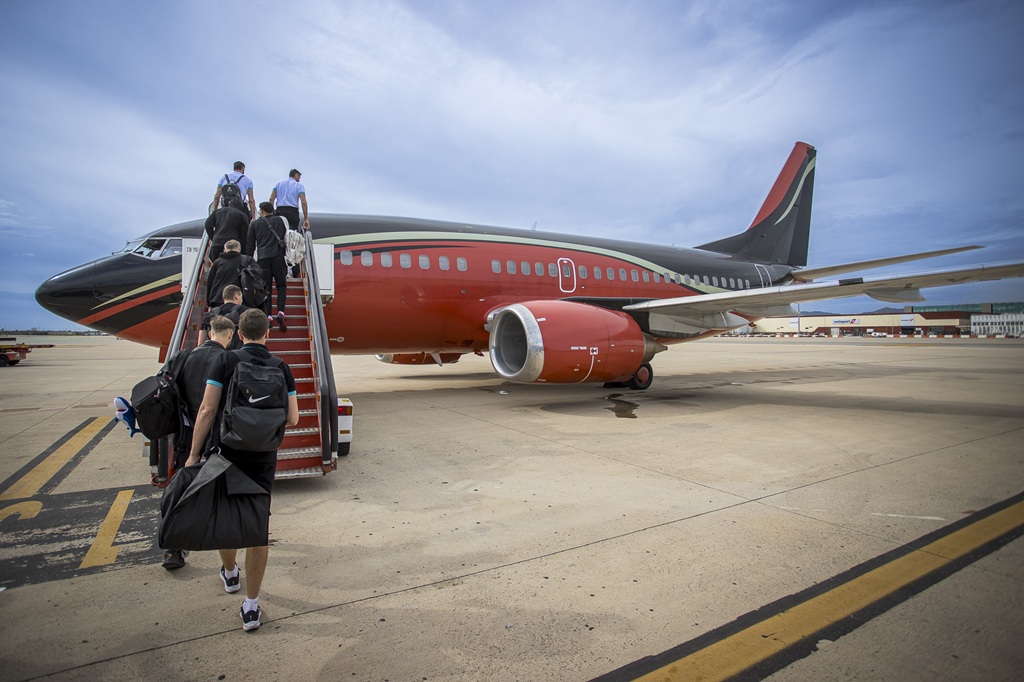
Private charter flights are all about timing
In the sports world, teams, sponsors, and VIP guests often need to move quickly from one major event to another. KlasJet coordinates these complex multi-leg journeys, ensuring arrivals align with training schedules, media commitments, and competition times. This level of coordination becomes especially critical when you have to manage appearances at multiple events while maintaining peak performance conditions.
“We’ve developed relationships with FBOs (Fixed Base Operators) at key airports near each circuit. This means priority handling, and during race weekends, every minute counts – whether you’re a team principal needing to make a sponsors’ dinner or a CEO combining the race with crucial business meetings,” explains Edvinas Finenko, Sales Development Manager at KlasJet.
According to him, flexibility is essential, and it can only be ensured by providers with the right expertise and connections. Ultimately, this flexibility is key to ensuring a journey that’s smooth and memorable no matter who is flying – athletes or their fans.
“When someone chooses private aircraft charter to fly to a Formula 1 or other high-profile sporting event, the flight is not just a means to an end. In a way, it’s an integral part of the overall experience,” adds Mr. Finenko.
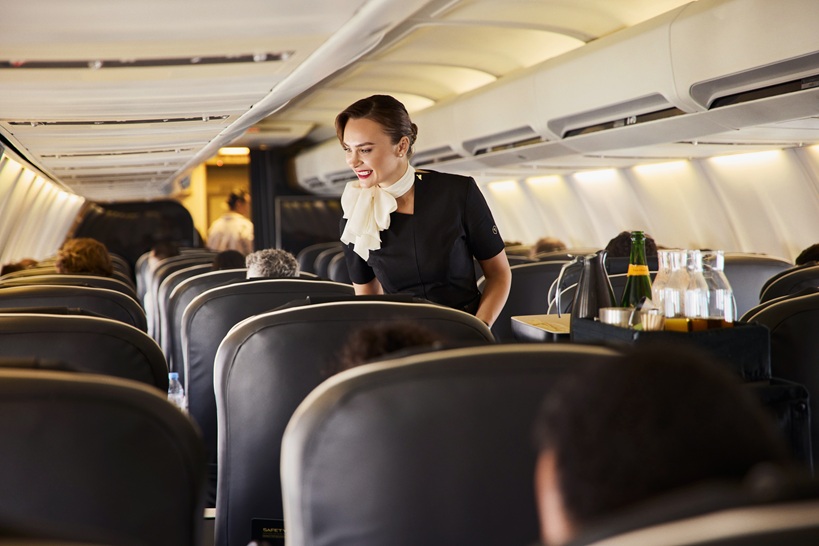
Strict diet and privacy
Flying with athletes requires some specific preparations. Sports teams typically have some particular requirements and internal rules that need to be respected and taken into account. It all starts with food service, which differs quite significantly from the kind typically associated with private flights.
“When we fly with athletes, nutrition is probably the number one concern. Teams almost always follow a very prescriptive nutritional plan, so the menu has to be compiled strictly and meticulously, in close collaboration with nutritionists and dieticians. And it’s not just about what food you serve, it’s also about when you serve it. This is an incredibly sensitive aspect, and in many cases it’s even forbidden to offer snacks to the passengers,” says Ms. Valaikaitė.
Another important aspect during such flights is privacy. Athletes very often travel to games where they are competing for the most important trophies, in front of tens of thousands of fans, and hundreds of millions glued to their TV screens at home. Naturally, even the best of the best feel pressure and don’t need any additional distractions.
“Athletes fly to competitions in a particularly focused state, so they want to be disturbed as little as possible. We follow a series of unwritten rules that indicate we don’t approach athletes with requests for photos or autographs, or even with unnecessary questions. Ensuring that our passengers can relax and rest is of utmost importance to us,” emphasizes Ms. Valaikaitė.
Triumphs and tears
She also adds that it’s crucial for every flight attendant to be able to sense the atmosphere on the plane. Athletes can be quite emotional people, and you have to match those emotions as best you can. “This is especially true after competitions. You always have to check the final result of the game. After the most important ones, there could be all kinds of emotions. If the team loses, you have to be very sensitive when communicating with the players. And conversely, after major victories, the plane sometimes roars with joy and a sense of triumph,” she says.
The KlasJet flight attendant highlights the main advantage teams get from flying private. Yes, flexible schedules and additional legroom are very important, but even more essential is the fact that the flight provider delivers not just transport from point A to point B, but also all of the services before, during, and after it.
This means that the flight crew often become much more than service providers. In some cases, they are treated almost like the members of the team itself. “I remember this one flight, when the manager of the team handed out competition jerseys to us, and we worked wearing not our uniforms, but the club’s. It was such a fun experience. That’s such a massive advantage of working for private flight airlines. You’d hardly ever experience something like that working elsewhere,” says Ms. Valaikaitė.


